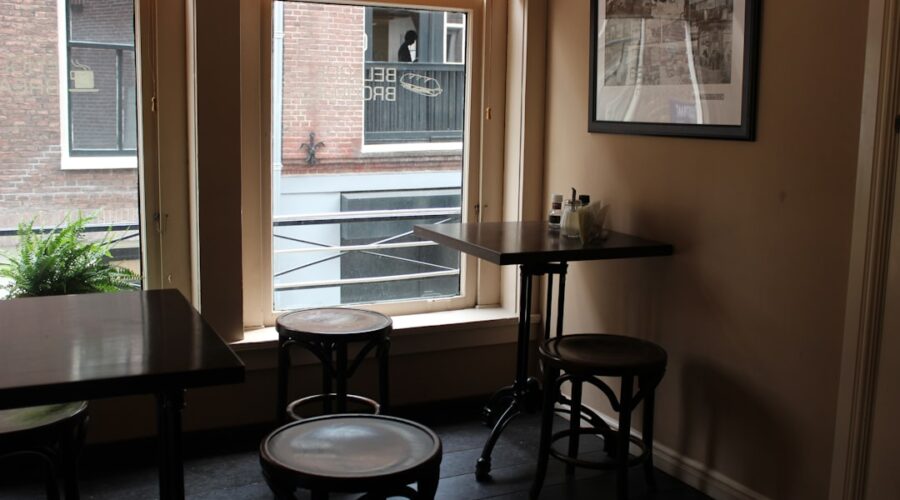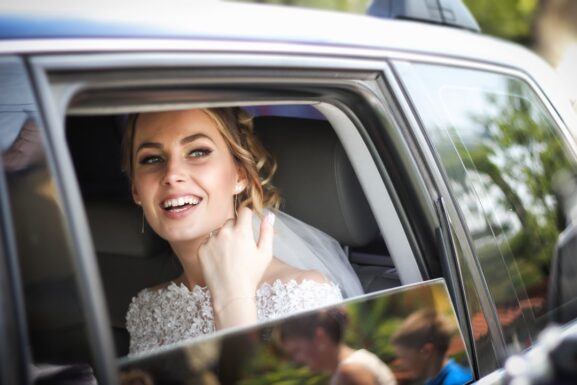Ensuring Guest Comfort: How Wedding Planners Make Everyone Feel Included
Understanding the needs of every guest is crucial when planning a wedding to ensure an inclusive and memorable experience. This involves considering factors such as dietary restrictions, cultural backgrounds, and physical abilities. By addressing these diverse needs, hosts can create an environment where all guests feel welcome and valued.
One effective method to gather information about guests’ requirements is to include a detailed questionnaire with wedding invitations. This can help collect data on dietary restrictions, allergies, and any special accommodations needed. Additionally, considering the cultural backgrounds of guests and incorporating elements of their heritage into the celebration can enhance the overall experience.
Being open and receptive to feedback is also essential. Encouraging guests to communicate any special considerations or accommodations they may need allows for necessary adjustments to be made. This approach helps create a more inclusive atmosphere and ensures that all guests can fully participate in and enjoy the celebration.
By prioritizing guest needs and making efforts to accommodate various requirements, couples can create a wedding celebration that is truly welcoming and inclusive for all attendees.
Creating Inclusive Seating Arrangements and Accommodations
Considering Diverse Needs and Preferences
Creating inclusive seating arrangements and accommodations is essential for ensuring that all of your guests feel comfortable and valued at your wedding. This means taking into consideration factors such as mobility issues, visual or hearing impairments, and cultural preferences when planning the layout of your venue and seating arrangements.
Providing Variety in Seating Options
One way to create inclusive seating arrangements is to provide a variety of seating options that can accommodate different needs and preferences. This may include offering both traditional table seating as well as lounge areas with comfortable seating for guests who may have difficulty sitting for long periods of time. Additionally, it’s important to consider the layout of your venue and ensure that there is ample space for guests with mobility issues to navigate comfortably.
Accommodating Visual and Hearing Impairments
In addition to seating arrangements, it’s important to consider accommodations for guests with visual or hearing impairments. This may include providing large-print menus or braille signage, as well as ensuring that any audio announcements or music are accessible to all guests. By creating inclusive seating arrangements and accommodations, you can ensure that every guest feels valued and included in your wedding celebration.
Providing Special Considerations for Guests with Disabilities
When planning a wedding, it’s important to provide special considerations for guests with disabilities in order to ensure that everyone feels welcome and included in the celebration. This may include making accommodations for mobility issues, providing accessible facilities, and ensuring that all guests can fully participate in the festivities. By providing special considerations for guests with disabilities, you can create a more inclusive and enjoyable experience for everyone involved.
One important consideration for guests with disabilities is ensuring that the venue is fully accessible. This may include providing ramps or elevators for guests with mobility issues, as well as accessible restrooms and parking facilities. It’s also important to consider the layout of the venue and ensure that there are clear pathways for guests with disabilities to navigate comfortably.
In addition to physical accommodations, it’s important to consider the specific needs of guests with disabilities when planning the wedding festivities. This may include providing seating options that can accommodate wheelchairs or mobility aids, as well as ensuring that any entertainment or activities are accessible to all guests. By providing special considerations for guests with disabilities, you can create a more inclusive and welcoming environment for everyone attending your wedding.
Offering Diverse Food and Beverage Options
When planning a wedding, it’s important to offer diverse food and beverage options in order to accommodate the varied dietary preferences and restrictions of your guests. This means providing a range of menu choices that can accommodate different cultural backgrounds, dietary restrictions, and personal preferences. By offering diverse food and beverage options, you can ensure that every guest has a satisfying and enjoyable dining experience at your wedding.
One way to offer diverse food and beverage options is to work closely with your caterer to create a menu that can accommodate different dietary restrictions and preferences. This may include offering vegetarian, vegan, gluten-free, or dairy-free options, as well as considering any cultural or religious dietary restrictions that your guests may have. By offering a diverse range of menu choices, you can ensure that every guest has something delicious to enjoy at your wedding.
In addition to diverse menu options, it’s important to consider the beverage choices available to your guests. This may include offering a variety of non-alcoholic options for guests who do not drink alcohol, as well as ensuring that any alcoholic beverages are clearly labeled and served responsibly. By offering diverse food and beverage options, you can ensure that every guest feels valued and included in the dining experience at your wedding.
Ensuring a Welcoming and Accessible Venue
Ensuring a welcoming and accessible venue is essential for creating an inclusive and enjoyable experience for all of your wedding guests. This means considering factors such as the layout of the venue, accessibility for guests with disabilities, and creating a warm and inviting atmosphere for everyone attending your celebration. By ensuring a welcoming and accessible venue, you can create a positive and memorable experience for all of your guests.
One important aspect of ensuring a welcoming and accessible venue is considering the layout and design of the space. This may include providing ample seating options, clear pathways for guests to navigate comfortably, and creating designated areas for different activities or entertainment. It’s also important to consider the lighting and acoustics of the venue in order to create a comfortable and inviting atmosphere for all guests.
In addition to the physical layout of the venue, it’s important to consider accessibility for guests with disabilities. This may include providing ramps or elevators for guests with mobility issues, as well as ensuring that all facilities are fully accessible. It’s also important to consider the specific needs of guests with disabilities when planning the layout of the venue in order to ensure that everyone can fully participate in the festivities.
Facilitating Communication and Coordination with Wedding Agencies
Effective Communication with Wedding Agencies
Facilitating communication and coordination with wedding agencies is crucial for ensuring that all aspects of your wedding celebration are inclusive and accommodating to the needs of your guests. This involves working closely with vendors, planners, and other agencies involved in your wedding to communicate any special considerations or accommodations that may be needed. By doing so, you can ensure that every aspect of your celebration is thoughtfully planned and executed.
Proactive Communication for Inclusivity
One way to facilitate communication and coordination with wedding agencies is to clearly communicate any special considerations or accommodations that may be needed for your guests. This includes providing detailed information about dietary restrictions, accessibility needs, or cultural preferences to ensure that all vendors are aware of these important details. By communicating proactively with wedding agencies, you can ensure that every aspect of your celebration is planned with inclusivity in mind.
Coordinating for a Seamless Celebration
In addition to communication, it’s essential to coordinate closely with wedding agencies to ensure that all aspects of your celebration are thoughtfully planned and executed. This involves working closely with vendors to create inclusive menu options, coordinating with planners to ensure accessibility throughout the venue, and communicating with entertainment providers to ensure that all activities are accessible to all guests. By facilitating communication and coordination with wedding agencies, you can ensure that every aspect of your celebration is inclusive and accommodating to the needs of your guests.
Implementing Thoughtful and Inclusive Wedding Traditions and Customs
Implementing thoughtful and inclusive wedding traditions and customs is essential for creating a meaningful and memorable experience for all of your guests. This means considering the diverse cultural backgrounds and traditions of your guests in order to incorporate elements that are meaningful and inclusive for everyone attending your celebration. By implementing thoughtful and inclusive wedding traditions and customs, you can create a truly special experience that honors the diversity of your guests.
One way to implement thoughtful and inclusive wedding traditions is to consider the cultural backgrounds of your guests when planning the ceremony and reception. This may include incorporating elements such as traditional music, attire, or customs from different cultures in order to create a meaningful and inclusive experience for everyone attending your celebration. By honoring the diverse traditions of your guests, you can create a wedding celebration that is rich in meaning and significance.
In addition to cultural traditions, it’s important to consider the specific needs and preferences of your guests when planning the customs of your wedding celebration. This may include creating inclusive rituals or customs that can accommodate different abilities or preferences, as well as ensuring that all guests feel comfortable participating in the festivities. By implementing thoughtful and inclusive wedding traditions and customs, you can create a celebration that is truly meaningful and memorable for all of your guests.
In conclusion, understanding the needs of every guest is essential for creating an inclusive and memorable wedding celebration. By taking into consideration factors such as dietary restrictions, cultural backgrounds, physical abilities, and personal preferences, you can ensure that every guest feels valued and included in your special day. From creating inclusive seating arrangements and accommodations to offering diverse food and beverage options, ensuring a welcoming and accessible venue, facilitating communication with wedding agencies, and implementing thoughtful wedding traditions, there are many ways to create an inclusive experience for all of your guests.
By prioritizing inclusivity throughout every aspect of your wedding planning process, you can create a celebration that is truly meaningful and memorable for everyone involved.
If you’re in the midst of planning a wedding, you may also be thinking about how to make your proposal extra special. Check out this article on October marriage proposal ideas for some inspiration on how to create a memorable and inclusive moment for you and your partner. Just like wedding planners strive to ensure guest comfort, these proposal ideas can help make everyone feel included in the celebration of your love.
FAQs
What is the role of a wedding planner in ensuring guest comfort?
A wedding planner plays a crucial role in ensuring guest comfort by creating a welcoming and inclusive atmosphere for all attendees. They consider factors such as seating arrangements, dietary restrictions, and accessibility to ensure that every guest feels included and comfortable.
How do wedding planners accommodate guests with dietary restrictions?
Wedding planners work with the couple and caterers to accommodate guests with dietary restrictions by offering alternative menu options, clearly labeling food items, and communicating with guests to understand their specific needs.
What measures do wedding planners take to ensure accessibility for all guests?
Wedding planners take measures to ensure accessibility for all guests by selecting venues with wheelchair access, providing ample seating for elderly guests, and considering the layout of the event to accommodate individuals with mobility challenges.
How do wedding planners address cultural and religious considerations for guests?
Wedding planners respect and address cultural and religious considerations for guests by incorporating customs and traditions into the event, providing appropriate attire guidelines, and offering designated spaces for religious practices or rituals.
What strategies do wedding planners use to create a welcoming atmosphere for all guests?
Wedding planners create a welcoming atmosphere for all guests by incorporating inclusive language in event materials, offering diverse entertainment options, and providing clear communication about the event schedule and logistics.



